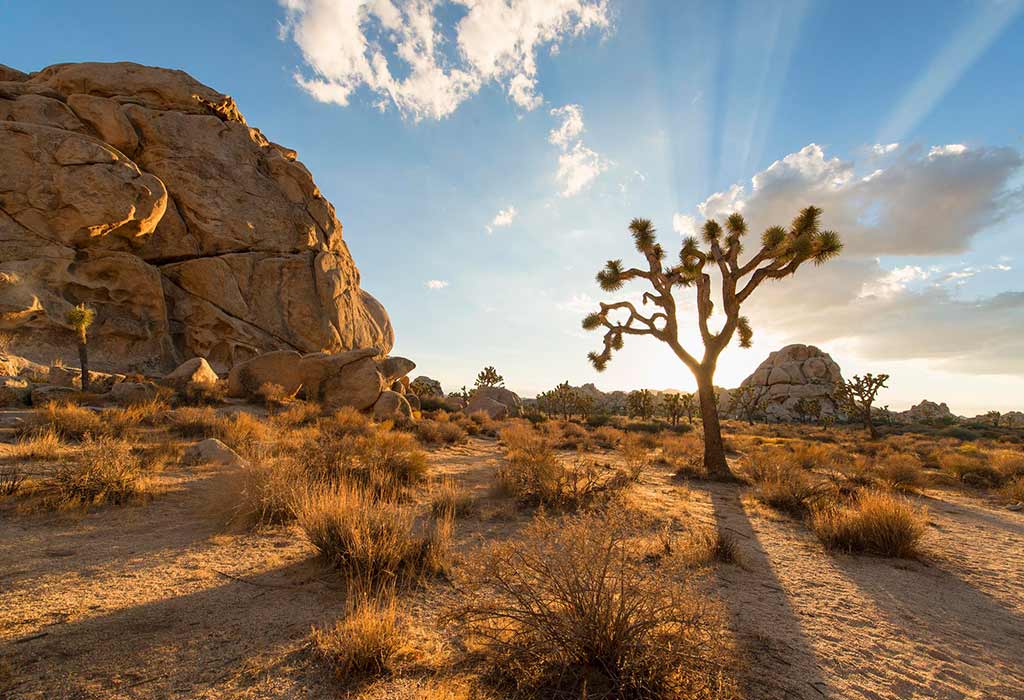Current work in wildlife, rivers, public lands, and climate
Press Releases
Feds deny protections for climate-imperiled Joshua tree
The Service’s 12-month finding on WildEarth Guardians’ petition only looked towards the species’ risk of extinction between 2040 to 2069 (less than 50 years in the future) and concluded that the threats to extinction due to factors such as climate change, wildfires, and drought, amongst others, are “not projected to result in population- or species-level declines . . . because the majority of the range of both species is projected to remain occupied and viable.” However, the decision also notes the huge degree of uncertainty as to the impacts of drought and anticipated temperature change of 3.6–5.4 degrees Fahrenheit by 2040–2069 on both Joshua trees and their specialist pollinators, the yucca moth and acknowledge the “potential for long-term negative effects.” Notably, while the decision focused on continued occupancy of current range by adult Joshua trees (with lifespans of between 150 and 300 years), it glossed over consideration of these threats on future generations of Joshua trees and the decreased future “recruitment” or ability of Joshua trees to reproduce in the face of climate change.
“We’re incredibly disappointed that the government, once again, has failed to afford future generations of Joshua trees the federal protections and help they need to withstand climate change, but sadly we’re also not surprised,” said Jennifer Schwartz, staff attorney at WildEarth Guardians. “While the ESA mandates that the Service’s listing decisions are to be based solely on the best available science, such decisions nevertheless become highly politicized. Now Guardians is forced to explore whether another round of litigation is needed to show that the Service again caved to political opposition and arbitrarily disregarded multiple recent studies forecasting the Joshua tree’s future plight.”
Joshua trees have existed for over 2.5 million years, but several published, peer-reviewed models show that climate change will eliminate this beloved plant from the vast majority of its current range, including Joshua Tree National Park, over the coming decades without robust efforts to dramatically reduce carbon emissions and address threats from invasive grass-fueled wildfires. In summer 2020, the Mojave Desert reached a record-breaking 130 degrees. Enormous wildfires like the Dome Fire have decimated thousands of acres of habitat, destroying an estimated 1.3 million Joshua trees.
“The intent of the ESA is not to wait until a species is on life support before it can receive any federal protection,” said Lindsay Larris, wildlife program director at WildEarth Guardians. “This is yet another example of the federal government failing to protect a species before it is too late. We should be proactively putting imperiled species on the path to recovery, not dooming them to hover on the brink of extinction if we truly value preserving biodiversity in this country.”
WildEarth Guardians has been fighting for federal protections for the Joshua tree since the organization’s initial petition to list the species as “threatened” under the ESA in September 2015, citing the severe impacts of climate change on the native succulent. In August 2019, the Service first denied listing protection for what it clarified were actually two distinct species of Joshua tree – eastern Joshua tree (Yucca jaegeriana) and western Joshua tree (Yucca brevifolia) – because it believed neither species was likely to face a danger of extinction in the next 80 years. WildEarth Guardians filed a lawsuit in November 2019 in the Central District of California, challenging the Service’s decision, arguing that the agency failed to consider multiple climate models and improperly discounted best available science on Joshua tree reproduction and dispersal.
In September 2021, Judge Otis Wright ruled in favor of WildEarth Guardians, finding that the agency disregarded material information and reached conclusions that were unsupported by factual evidence. Specifically, as argued by WildEarth Guardians in the case, the Service’s 2019 decision essentially ignored what the best available science revealed: increasing temperatures and prolonged droughts are already impeding successful Joshua tree reproduction in the southern Mojave, a problem that will spread to the majority of both species’ ranges in the coming decades. Judge Wright ordered the Service to redo its listing decision and account for all the recent science it improperly dismissed.
“It’s unfortunate that it takes resource-intensive lawsuits from the conservation community to get the federal government to provide safeguards and recovery options for so many at-risk species,” said Schwartz. “We should be focusing on mitigating impacts and helping species adapt to climate change—not more courtroom battles. But the reality is, litigation drives most of the Service’s ESA-related decisions. So we’ll keep fighting to get dwindling plants and wildlife the protections they deserve.”
The Endangered Species Act celebrates its 50th anniversary in 2023. The ESA was signed into law on December 28, 1973 by President Nixon after passing unanimously in the Senate and by a vote of 390-12 in the House. As the most stringent federal protection for addressing biodiversity loss, the ESA is credited with preventing the extinction of more than 99% of species listed.
